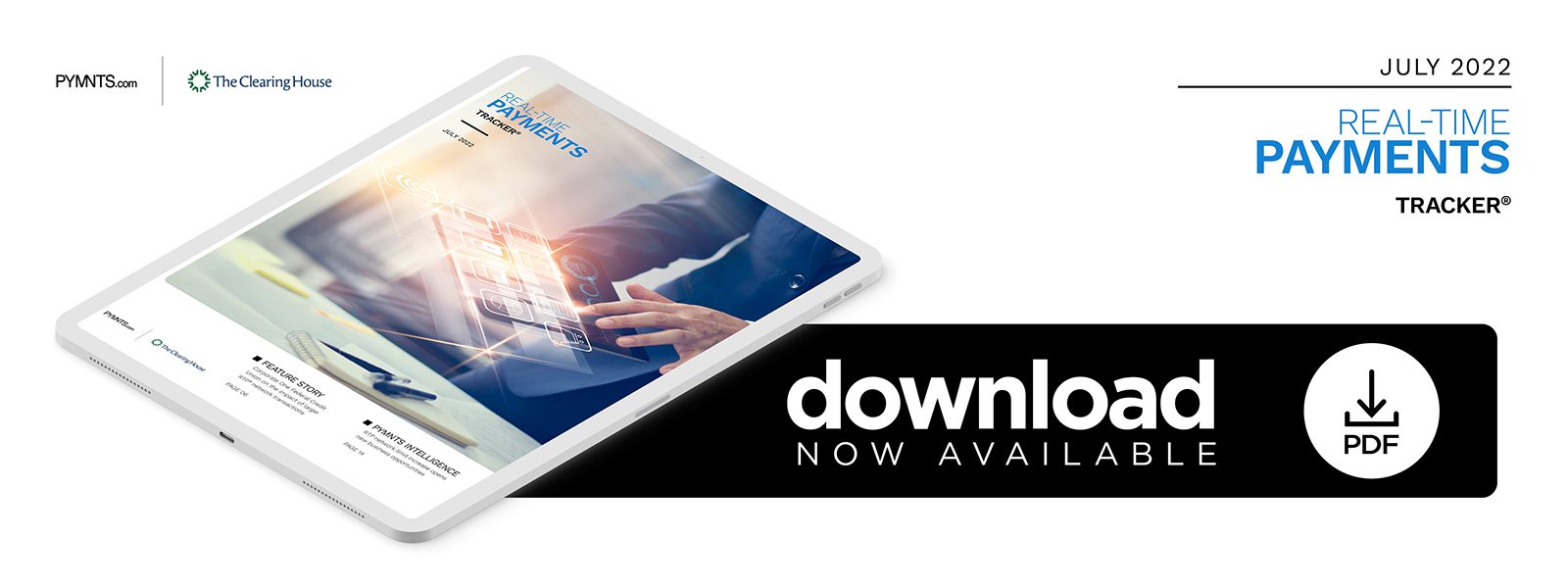Corporate One Federal Credit Union on the Impact of Larger RTP® Network Transactions

The RTP® network raised the bar for real-time payments with its $1 million transaction limit. In the “Real-Time Payments Tracker®,” Corporate One Federal Credit Union CEO Melissa Ashley tells PYMNTS about other ways the limit increase is changing the game, from housing to cars to corporate treasury and more.
Serving more than 700 credit unions (CUs) nationwide, Corporate One Federal Credit Union has a long reach in the CU world. As both a funding agent and a third-party service provider (TPSP) on the RTP® network through wholly-owned subsidiary Sherpa Technologies, Corporate One is a participant and also serves as the pathway for CUs to participate in the network.
Corporate One is currently piloting functionality that permits its member CUs to send and receive real-time payments on the network using their accounts with Corporate One, according to CEO Melissa Ashley. This will ultimately make it possible for any member CU to become an RTP network participant. While larger banks have driven much of the volume in real-time payments so far, Ashley said that Corporate One wants to ensure its member CUs are not left behind.
“We’re member-owned by credit unions, and we want credit unions to have the same opportunities to be able to process real-time payments,” she told PYMNTS in a recent interview.
Ashley has spent a significant amount of time discussing with member CUs the potential of the recent increase in the RTP network transaction limit from $100,000 to $1 million. She has traveled the country talking with these CUs about the use cases they anticipate due to the higher limit and the benefits of sending payments in real time.
Making Big Changes
The higher transaction limit produced growth in the RTP network for key CU product areas, Ashley said. These include mortgages, escrow payments and car loans, as well as home-purchase disbursements and treasury management. As a result, the RTP network experienced a 374% increase in transactions exceeding $25,000 from April to May.
“Our pilots were very interested in using [the RTP network] for those same use cases, and they were going to be stymied by that $100,000 limit,” she explained.
The positive experiences of pilot CUs have generated anticipation among Corporate One’s member CUs for a rollout to all members, Ashley noted.
“I can tell you there’s a lot of excitement around this service,” she said.
Mortgages and auto loans are member CUs’ bread and butter, Ashley said. Absent real-time payments, these transactions are completed using paper checks, automated clearing house (ACH) or even wire transfers. Using the RTP network can give member CUs a competitive advantage.
“RTP is very attractive [for] faster payments, weekend payments, holiday payments, when [car] dealers are doing more business,” she said.
Simplifying the Payments Process
As CUs consider the benefits of RTP network participation, Ashley said she is hearing of innovative use cases, such as transferring large sums to other financial institutions (FIs) for refinancing auto loans or consolidating debt. Unlike a check in the mail, a real-time transaction instantly closes out the old accounts and prevents additional interest from being accrued.
With transactions such as mortgages, the RTP network has advantages even over wire payments by allowing immediate confirmation that the funds are good and have been transferred directly to an account. In contrast, methods such as ACH only show that the money has left the payor’s account, and there is no confirmation that the payee has received the money. Without that confirmation, the payor may not have certainty a payment was received until the next bill comes in.
Even Corporate One has experienced the benefits of real-time payments’ predictability and finality, Ashley said. The CU is constantly watching to see if vendors it works with are added to the RTP network.
Economic Timing
While RTP network payments already had advantages over wire transfers, ACH and paper checks, the limit increase expands the utility of those benefits, Ashley said. The rising costs across the economy make that limit increase even more significant. She noted that a down payment on a house could easily exceed $100,000, and many auto loans also exceed the previous limit.
“We see inflationary pressures out there that are driving up even just vendor costs,” she said.
Economic pressures have also made markets more competitive, and being able to transfer funds immediately may be a deciding factor in which FI a business chooses to work with. Similarly, with supply shortages, it is beneficial for businesses to be able to make RTP network payments, providing an incentive for suppliers to favor their relationships with buyers who have that advantage.
